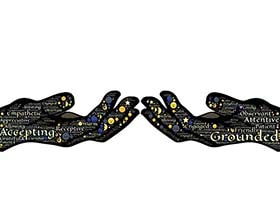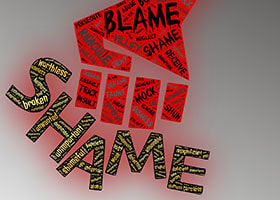|
By Sybil Cummin, MA, LPC, ACS In this video, Sybil discusses how clinicians and attorneys can best support clients, who have experienced abuse, navigate the legal system, particularly when Orders of Protection have been broken. For more videos, visit our Videos page or check out the Beyond Power and Control YouTube Channel.
6 Comments
By Sybil Cummin, MA, LPC, ACS  1. Taking Control of the Timeline of the Case If your client is hesitant or fearful to testify, their abuser knows it. How can the abuser use this to their advantage? They can use different tactics to continue the case. Some of these cases take over a year for the jury trial to occur, forcing your client to show up to court each time, experiencing all of the anxiety that occurs with this, only to find out that the case will be continued for another 6-8 weeks. This can happen numerous times for numerous reasons. This also effects other potential witnesses.  Spirituality is a source of comfort, guidance, meaning and purpose for many people. However, for many survivors of domestic violence, misguided religious messages can be used to justify abuse and coerce victims to submit and accept maltreatment, coercion, cruelty, neglect and/or violence. Spiritual abuse is an insidious form of trauma and psychological manipulation that uses religious doctrine to control community members and keep them subjugated. When spiritually toxic environments intersect with domestic violence, often scripture is used to embolden abusers. Often times, scripture that alludes to women being required by God to be submissive or “fulfill their wifely duties” is used to force victims – women especially – to submit to their abuser. Worse yet, many survivors who report their abuse to practicing family or community members, are often turned away and told to “pray, submit, and be a good wife.” This is a powerful form of victim blaming and makes leaving a domestically violent relationship that much more heartbreaking. By Sybil Cummin, MA, LPC, ACS By Megan Burch, LSW, Therapist/Owner of Joy Creek Counseling, LLC  After partnering with survivors of domestic violence for over 10 years, I have heard many comments from other helping professionals expressing their frustrations in working with domestic violence, particularly in working with survivors. Often, helping professionals ask questions or make statements with no easy answers or no clear context. Why doesn’t my client just leave? My client lies to me. My client is minimizing the abuse. These questions/statements are loaded with complexity. When I hear comments like this, I try to look at this from a position of assuming well. I like to assume that, “This helping professional cares about the well-being of their client.” When we make statements like this, it is often out of concern for our clients. We don’t want to see them get hurt anymore. We want the best for them. We want them to be able to live a life free of emotional and physical violence. By Sybil Cummin, MA, LPC, ACS  When you hear the term domestic violence, what first comes to mind? Black eyes and split lips? Who do you picture? A woman in a low-income neighborhood or trailer park with bleached hair, cut-off shorts with a cigarette hanging out of her mouth? What about the abuser? What kind of monster do you depict? Does anything change when you hear the term intimate partner violence? There are many different definitions of domestic violence (also known as intimate partner violence). There are different legal definitions depending on what state you live in. You can find the definition for your state here. A little more similar are the therapeutic definitions used by mental health professionals and advocates. I have combined several different definitions found in the literature to create yet another one. One that, I believe, encompasses a majority of the aspects and nuances of domestic violence. Domestic Violence (also known as Intimate Partner Violence) is a systematic and willful pattern of power and control perpetrated by one intimate partner against another and includes, but is not limited to, intimidation, physical assault, sexual assault, psychological and/or emotional abuse, and economic coercion. By Sybil Cummin, MA, LPC, ACS  Victims and survivors of intimate partner violence (IPV) are questioned and discredited by those that are supposed to help keep them safe. Here are some statements made by victims and survivors of IPV that they would like therapists and other professionals to know before working with this population. “Abusers make sure they seem like good people so that if their victims speak up not one will believe it” -K By Sybil Cummin, MA, LPC, ACS (If you are in an unsafe relationship, please take caution in where you keep this article or any of the activities completed based on this article. Please reach out to your local advocacy center if you need help with safety).  There are many beliefs about the power of forgiveness and the necessity to do so if you want to heal. You might receive the advice that if you do not forgive your abuser, then it will forever eat you up inside. The thought of forgiving the person that tore you down, gave you bruises, made you doubt your own reality, threatened to take away your children (or maybe even succeeded) and did so willfully is sickening to you. If you are still experiencing forms of abuse even after separation, how do you forgive someone of past hurts, when they are not in the past at all? The abuse is current. So, is forgiveness of your abuser a mandatory part of healing? In my work with victims and survivors of Intimate Partner Violence (IPV) and survivors of sexual abuse, forgiveness as it is typically defined does not seem to be a necessary step of the healing process. There are two processes on your healing journey that relate to forgiveness that are truly helpful, and for the clients I have worked with an integral part of the healing process. The first is an understanding of the abuse and your abuser. Second, and probably holds the most power in your healing journey, is forgiveness of yourself. By Sybil Cummin, MA, LPC (If you are in an unsafe relationship, please take caution in where you keep this article or any of the activities completed based on this article. Please reach out to your local advocacy center if you need help with safety).  Do you find yourself feeling guilty for everything in your relationship? Does everything feel like it is your fault or are you made to believe all your relationship problems are your fault? This tactic is a very common one with in abusive relationships and is one that can keep you hooked into staying for a long time. How can you determine if the fault and responsibility for the problems in your relationship are yours to carry and how can you discard these feelings to gain a true perspective on your relationship? Are you really feeling guilt or is it something different all together? I think that it is important to look at what the term “guilt” truly means and how it can be helpful or harmful to our self-worth and mental health. Guilt can be identified as a feeling when we have done something that goes against our values or when we have done something “wrong.” |
AuthorSybil Cummin, MA, LPC, ACS Archives
February 2021
Categories
All
|
